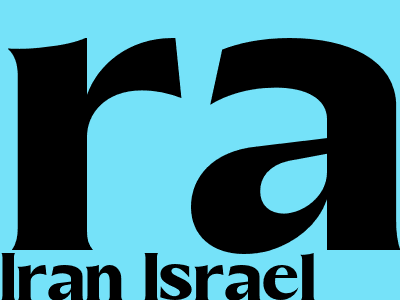
Iran–Israel Relations: A History Steeped in Conflict
Origins of Tensions
The roots of Iran–Israel tensions lie in the 1948 Arab-Israeli War, when Iran joined other Arab states in opposition to the creation of the State of Israel. Iran recognized Israel in 1950, but ties remained strained due to Tehran's support for Palestinian liberation movements and its alignment with Arab regimes hostile to Israel.Religious and Ideological Differences
The religious and ideological divide between Iran and Israel further exacerbated tensions. Iran's Shi'a Muslim leadership viewed Israel as a Zionist entity that threatened Islamic interests in Palestine. Israel, on the other hand, considered Iran a source of Islamic militancy and a potential threat to its security.Post-Revolution Iran
The overthrow of the Shah of Iran in 1979 and the establishment of the Islamic Republic further strained relations. The new Iranian regime under Ayatollah Ruhollah Khomeini adopted an anti-Israel stance, calling for the destruction of the "Zionist entity." Iran accused Israel of conspiring against its revolution and supporting its enemies, while Israel viewed Iran as a dangerous state with nuclear ambitions and a patron of terrorism.
Proxy Wars and Regional Conflict
Iran and Israel have engaged in proxy wars throughout the Middle East, supporting opposing sides in conflicts such as the Lebanese Civil War and the Syrian Civil War. Iran has provided financial, military, and logistical support to Hezbollah, a Lebanese Shia Islamist militant group, which has launched attacks against Israel. Israel, in turn, has targeted Iranian-backed forces in Syria and Lebanon, and has been accused of conducting airstrikes against Iranian military targets in Iran.
Nuclear Controversy and Security Concerns
Iran's nuclear program has been a major source of tension with Israel. Israel fears that Iran is developing nuclear weapons, which it sees as a threat to its existence. Iran maintains that its nuclear program is for peaceful purposes, but its refusal to cooperate with international inspectors has fueled suspicions. Israel has threatened military action against Iran's nuclear facilities if diplomacy fails to resolve the issue.
Recent Developments
In recent years, tensions between Iran and Israel have intensified. The election of President Donald Trump in the United States, who adopted a more confrontational stance towards Iran, further increased the likelihood of conflict. In 2018, the United States withdrew from the Iran nuclear deal, reimposed sanctions on Iran, and assassinated Iranian general Qasem Soleimani. In response, Iran launched missile attacks on US bases in Iraq and announced its intention to abandon the nuclear deal.